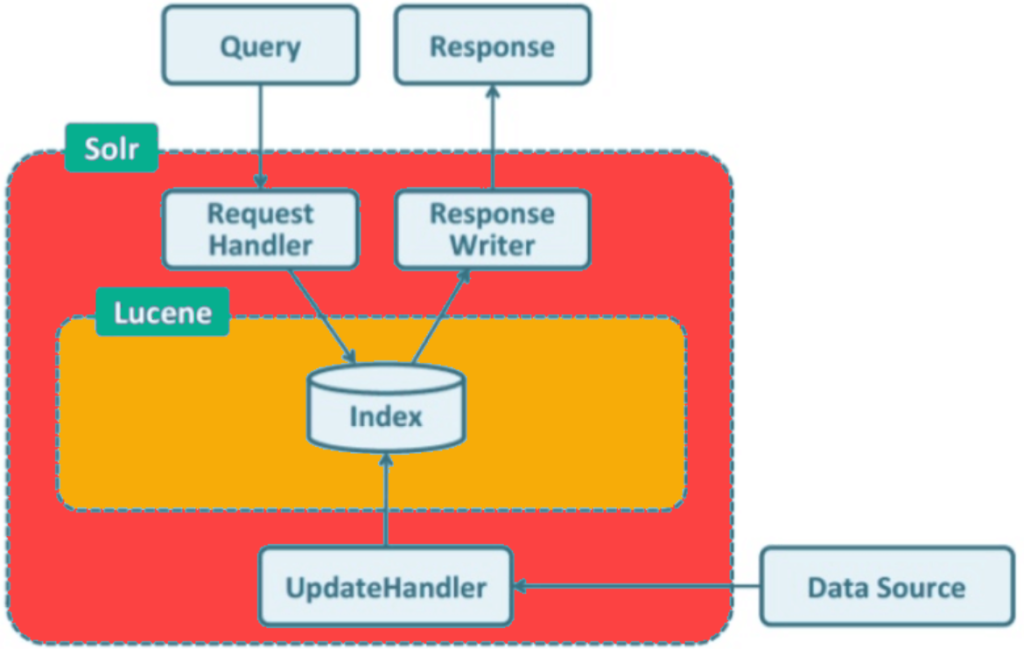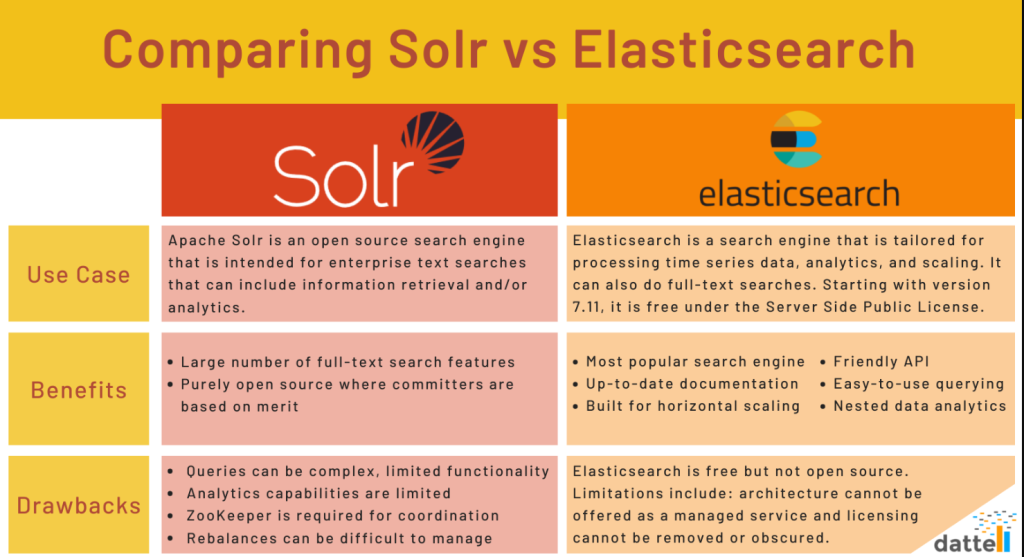
Solr is an open-source, highly scalable search platform built on top of Apache Lucene. It provides powerful capabilities for searching, indexing, and faceting large amounts of data. Here are 10 real use cases of Solr:
Apache Solr is an open-source search platform built on Apache Lucene, which is a high-performance, full-text search engine library. Solr is widely used for enterprise search and analytics purposes because it provides robust full-text search, hit highlighting, faceted search, dynamic clustering, database integration, and rich document (like Word and PDF) handling capabilities. It is designed to handle large volumes of text-centric data and provides distributed search and index replication functionalities. Solr is also known for its scalability and fault tolerance, making it a popular choice for large-scale search applications.

Here are ten real use cases of Solr:
- E-commerce Product Search: Solr is commonly used in e-commerce platforms to provide advanced search capabilities over a vast inventory of products. It helps in delivering relevant search results, supporting facets and filters (like brand, price range, and product features) to enhance user experience.
- Content Management Systems (CMS): Integrating Solr with CMSs allows websites to manage and search through large repositories of content such as articles, blogs, and other media types efficiently.
- Enterprise Document Search: Companies use Solr to index and search through extensive collections of documents, including emails, PDFs, Word documents, and more, making it easier for employees to find the information they need quickly.
- Social Media Analytics: Solr can process and index large streams of social media data for sentiment analysis, trend tracking, and monitoring public opinion, enabling businesses to gain insights into customer perceptions.
- Geospatial Search: Solr supports location-based searches, which can be used in applications like real estate listings and location-specific services to find entities within a given distance from a geographic point.
- Data Collection and Discovery: Research institutions use Solr to manage, search, and analyze large datasets, facilitating data discovery and academic research.
- Job and Resume Searching: Job portals utilize Solr to match candidates with jobs effectively. It indexes job listings and resumes, providing powerful search and filtering capabilities.
- News and Media Sites: Media outlets use Solr to manage and retrieve news content and articles based on various attributes like publication date, relevance, keywords, etc.
- Healthcare Information Systems: Solr is used in healthcare for indexing medical records, research papers, treatment histories, and other data, improving access to information and supporting better healthcare outcomes.
- Recommendation Systems: Solr’s ability to handle complex queries and analyze large amounts of data helps in building recommendation engines that suggest products, services, or content based on user preferences and behavior.

- Mastering Qualitative Research: The Role of Focus Groups in Data Collection - July 11, 2024
- What is robots ops? - July 10, 2024
- 5 Effective Online Learning Strategies for DevOps Professionals - July 4, 2024

